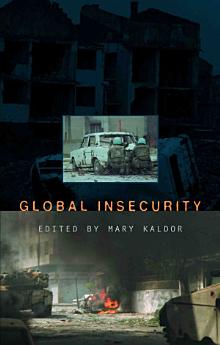關於這本電子書
The first half of the 1990s was a period of great optimism about humanitarian intervention. In the aftermath of the Cold War, it was
hoped that the international community could begin to act cohesively in defence of fundamental international principles and that a global
security policy aimed at the prevention of conflict and upholding human rights could be established. The actual experience of this period, however, has been sobering. Agreements engineered from above, like the Dayton Agreement or the Oslo Agreement, have mixed consequences. Efforts at humanitarian relief have often ended up frustrating good intentions and prolonging conflict. This book looks at what we learn from such experiences. Should we retreat from intervention? Is there a global reponsibility for wars and for massive violations of human rights? The authors start from a conviction that in a globalized world we do have certain responsibilities and that the point is to look at how we intervene. They aim to open up a "third approach" - an alternative to the dominance of realist or neo-liberal approaches - which would address the reality of contemporary conflict. Key themes include the need for a more democratic approach in terms of the accountability and openness of both governments and international institutions, the importance of international humanitarian law and the future of formal military forces.
hoped that the international community could begin to act cohesively in defence of fundamental international principles and that a global
security policy aimed at the prevention of conflict and upholding human rights could be established. The actual experience of this period, however, has been sobering. Agreements engineered from above, like the Dayton Agreement or the Oslo Agreement, have mixed consequences. Efforts at humanitarian relief have often ended up frustrating good intentions and prolonging conflict. This book looks at what we learn from such experiences. Should we retreat from intervention? Is there a global reponsibility for wars and for massive violations of human rights? The authors start from a conviction that in a globalized world we do have certain responsibilities and that the point is to look at how we intervene. They aim to open up a "third approach" - an alternative to the dominance of realist or neo-liberal approaches - which would address the reality of contemporary conflict. Key themes include the need for a more democratic approach in terms of the accountability and openness of both governments and international institutions, the importance of international humanitarian law and the future of formal military forces.
關於作者
Mary Kaldor is Director of the Programme on Global Civil Society at the Centre for the Study of Global Governance, London School of Economics. Among her most recent publications are New and Old Wars: Organized Violence in a Global Era (Polity Press and Stanford University Press 1999) and Global Insecurity (edited) (Continuum 2000).
為這本電子書評分
請分享你的寶貴意見。
閱讀資訊
智能手機和平板電腦
手提電腦和電腦
你可以使用電腦的網絡瀏覽器聆聽在 Google Play 上購買的有聲書。
電子書閱讀器及其他裝置
如要在 Kobo 等電子墨水裝置上閱覽書籍,你需要下載檔案並傳輸到你的裝置。請按照說明中心的詳細指示,將檔案傳輸到支援的電子書閱讀器。






